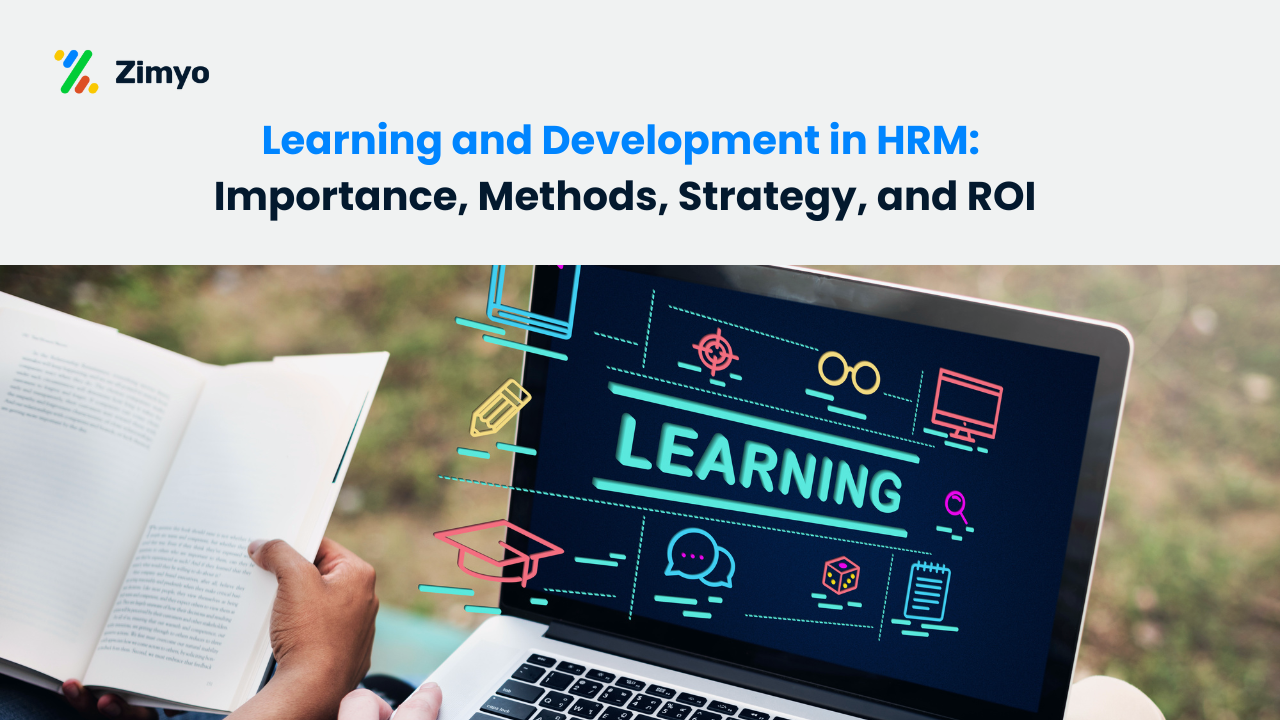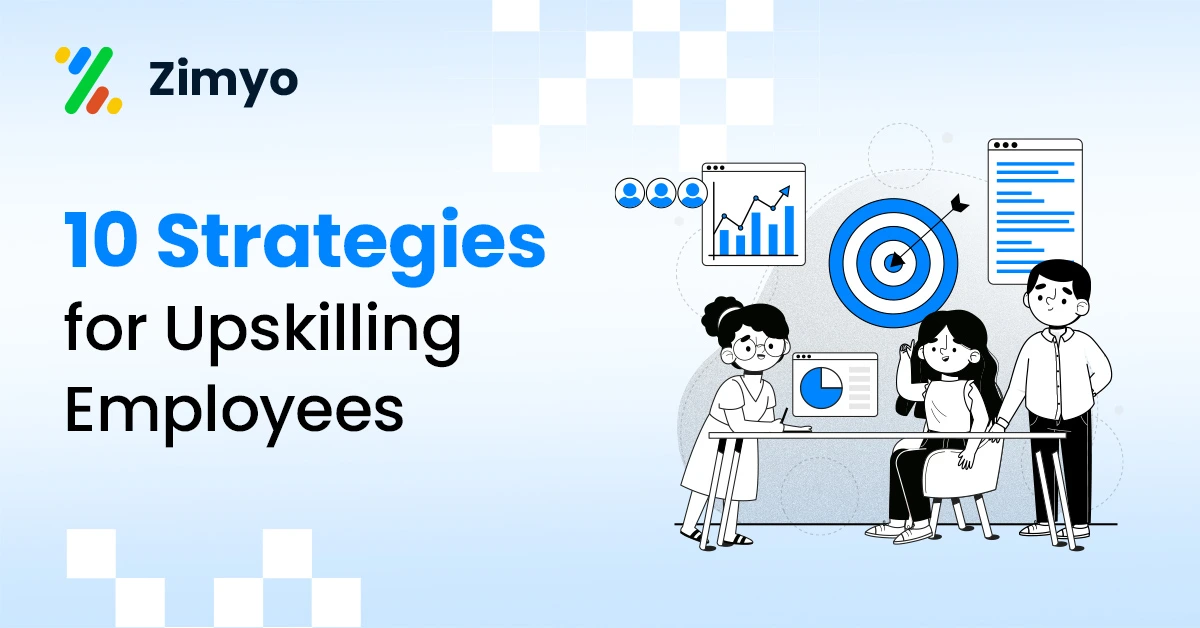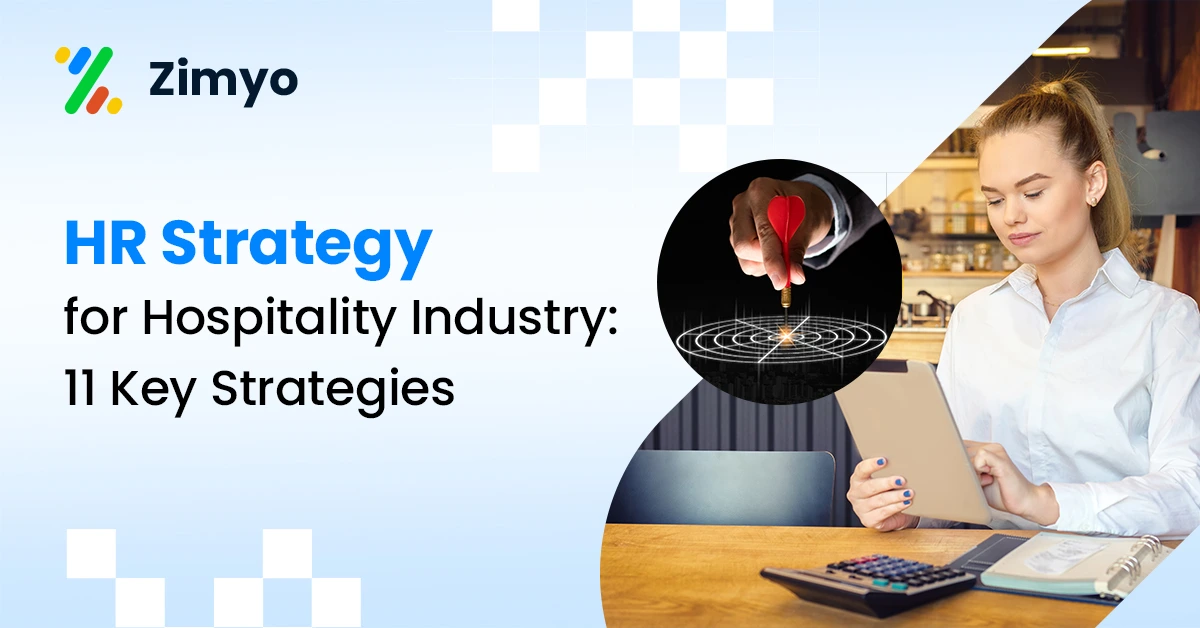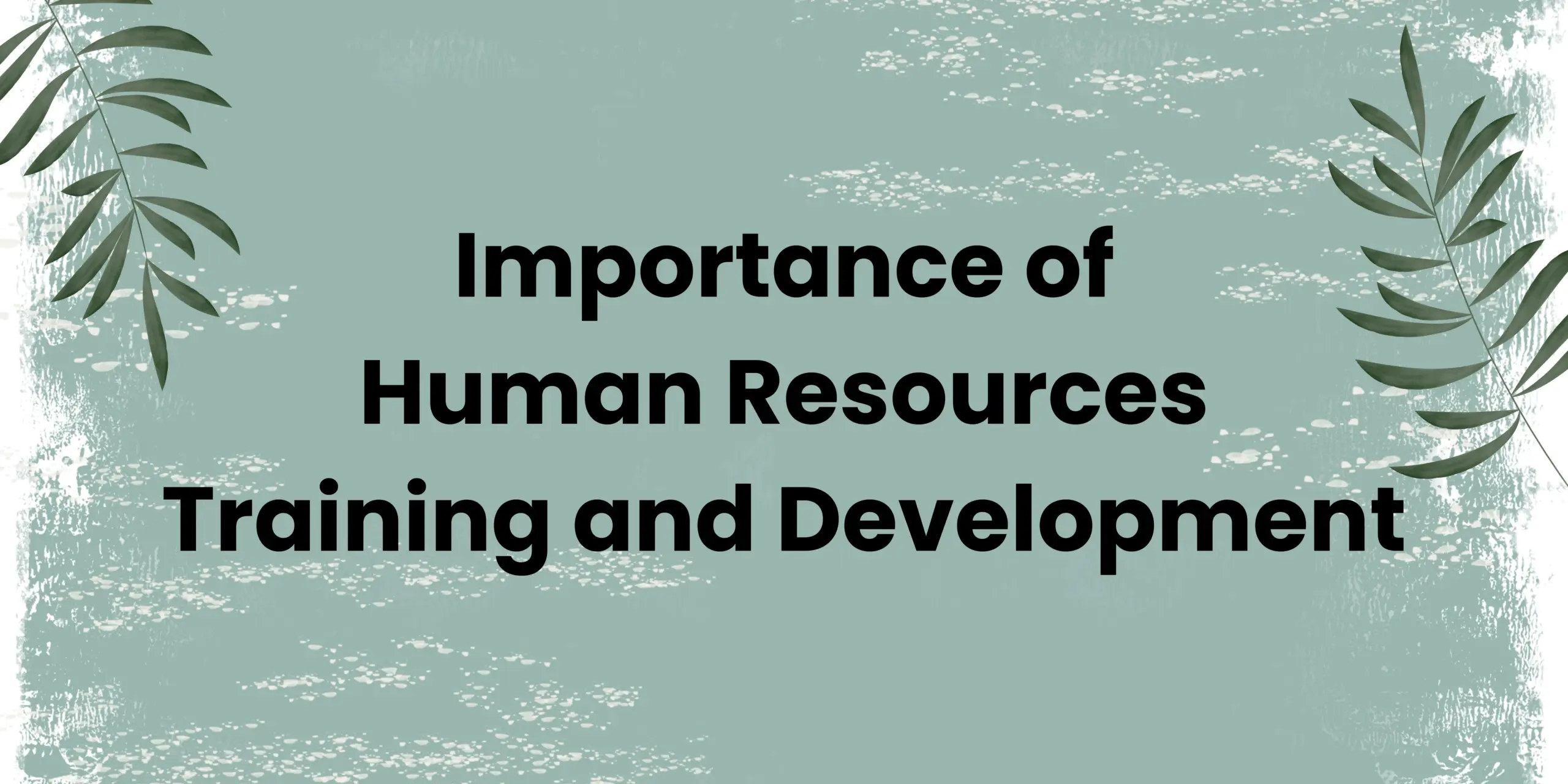Do you want to grow in your career in 2025? Start by setting strong Professional Development Goals.
No matter if you are a fresher or an experienced employee, the secret to long-term success lies in choosing the right career development goals and sticking to them.
In today’s fast-changing work environment, companies look for people who grow with time. That’s why professional goals are no longer optional; they’re essential. The world of work is evolving fast, and those who upgrade their skills and mindset win the race.
Let’s dive into the top 15 Professional Development Goals that can truly elevate your career in 2025.
What do Professional Development Goals mean?
Professional goals are specific targets or objectives that help you grow in your career. They guide your learning, performance, and progress at work. These goals can be short-term (like finishing a certification) or long-term (like becoming a team leader).
For example, a professional goal could be to improve public speaking, learn a new software, lead a project, or get promoted. These goals help you stay focused, develop new skills, and build a successful career path. Setting clear career goals also helps you stay motivated and gives your work more meaning.
Setting goals is the first step in turning the invisible into the visible.
Tony Robbins
What is the Definition of Professional Development Goals?

The official definition of Professional Development Goals is:
Professional development goals are objectives related to improving and increasing an individual’s capabilities and skills in their current job role or for career advancement.
Society for Human Resource Management (SHRM)
These goals are often tied to career growth, learning, and long-term performance in the workplace.
The Importance of Professional Development Goals
The importance of professional development goals lies in how they shape long-term career success. When employees set clear professional development goals, they stay focused, motivated, and aligned with the future of work. These goals help you identify where you are, where you want to go, and what skills you need to get there.
No matter if you’re aiming for leadership, learning a new skill, or simply becoming more productive, having strong career development goals gives direction to your efforts. It turns daily work into meaningful progress.
In today’s fast-paced world, developmental goals in the workplace are essential for staying relevant. With industries changing quickly, setting the right employee development goals ensures you’re ready for new roles, tech, and challenges. These personal development goals for work examples, like improving communication or mastering time management; increase job satisfaction, performance, and growth.
According to LinkedIn Learning, companies that invest in career goals see 24% higher employee retention. Simply put, professional goals aren’t just nice to have; they’re indispensable for growth, success, and future-readiness.
Top 15 Professional Development Goals to Elevate Your Career
1. Improve Communication Skills
Clear and confident communication is one of the most important development goals for work. It helps you build trust, lead teams, and avoid misunderstandings.
Personal development goals for work examples:
- Take an online course in business communication.
- Practice public speaking weekly.
- Attend Toastmasters sessions.
2. Learn a New Technology or Tool
In 2025, professional development goals must include learning at least one new tool or software. The future of work is digital. Mastering tools like Excel, Asana, Figma, or even AI platforms can give you a real edge.
Employee development goals:
- Learn AI based tools for productivity.
- Explore Canva for content creation.
- Use MS Teams for better collaboration.
3. Build Leadership Skills
Even if you’re not a manager, building leadership qualities is a smart career goal.
According to LinkedIn Learning’s 2024 report, leadership topped the list of developmental goals in the workplace.
Actions to take:
- Read books like Leaders Eat Last by Simon Sinek.
- Mentor a junior teammate.
- Take online leadership certifications.
4. Set Clear Career Goals
Don’t just work. Work with a direction. Setting short-term and long-term career development goals gives your efforts meaning. It helps you track growth and feel motivated.
Try this:
- Create a vision board.
- Break your 5-year goal into yearly targets.
- Revisit and update it every quarter.
5. Improve Time Management
Poor time use = poor results. Professional development goals must include better planning. When you manage time well, you handle more work without burnout.
Tips:
- Try the Pomodoro technique.
- Use Google Calendar or Notion.
- Set “focus hours” with no meetings.
6. Master Emotional Intelligence (EQ)
In 2025, EQ is as important as IQ. Being self-aware, calm under stress, and good with people helps you rise. According to TalentSmart, 90% of top performers have high EQ. Personal development examples:
- Start journaling.
- Practice active listening.
- Take feedback positively.
7. Build a Personal Brand
Your digital presence is your new business card. Building a personal brand through LinkedIn, blogs, or public speaking should be one of your top professional goals.
How to start:
- Post once a week on LinkedIn.
- Share your wins, learnings, or insights.
- Collaborate on side projects.
8. Learn to Give and Receive Feedback
Feedback makes you grow. Add this to your development goals for work. It helps teams improve faster and builds strong work relationships.
Goals to set:
- Ask your manager for monthly feedback.
- Learn how to give constructive criticism.
- Join peer-review sessions.
9. Take Ownership of Projects
Taking ownership is crucial in any job. This employee development goal shows you’re serious about your career and can be trusted with bigger tasks.
What you can do:
- Volunteer for new responsibilities.
- Set KPIs for your tasks.
- Review and improve results regularly.
10. Strengthen Networking Skills
Your network = your net worth. Build connections that help you grow. This is one of the most ignored but powerful career goals.
Set targets:
- Connect with 3 new people every month.
- Attend 1 webinar or offline event monthly.
- Keep in touch with old colleagues.
11. Expand Industry Knowledge
In 2025, knowing your role is not enough. You must also understand your industry. This professional development goal makes you sound smart in meetings and helps you spot opportunities faster.
Actions:
- Follow industry leaders on LinkedIn.
- Read newsletters like Morning Brew or HR Brew.
- Join niche Slack or WhatsApp groups.
12. Learn Conflict Resolution
Conflicts are part of every workplace. What matters is how you solve them. Developmental goals in the workplace should include conflict-handling training. It saves time, energy, and relationships.
How to build this:
- Read about negotiation skills.
- Observe how good leaders manage tough talks.
- Try role-playing scenarios.
13. Focus on Continuous Learning
The best professional development goal is to never stop learning. The world is changing fast. Continuous learning keeps you ahead.
Build this habit:
- Learn one new thing every week.
- Track your learning journey.
14. Improve Work-Life Balance
Burnout is real. Career development goals should include keeping your mind and body healthy. A tired mind can’t perform well.
How to do it:
- Block “no work” time in your day.
- Do something offline daily! Walk, paint, cook.
- Say no when you’re overwhelmed.
15. Prepare for Future Roles
Don’t wait for a promotion to start learning. Start building skills now for your next big role. According to Gartner, roles will evolve 60% faster in the next 3 years.
Actions:
- Ask your manager what skills are needed.
- Shadow a senior teammate.
- Practice new tools before you’re asked to.
How to Set Professional Development Goals?

Here are quick steps to set professional development goals you truly care about:
- Reflect on your career goals
– Ask: Where do I want to be in 1 year or 5 years? - Identify your skill gaps
– What do you need to learn or improve to grow? - Make your goals SMART
– Specific, Measurable, Achievable, Relevant, Time-bound. - Pick goals that excite you
– Choose things you’re passionate about, not just what others expect. - Break big goals into small steps
– Smaller wins keep you motivated. - Write them down
– Seeing your professional development goals in writing makes them real. - Track your progress regularly
– Adjust if needed, but don’t lose sight. - Celebrate milestones
– Reward yourself to stay motivated. - Ask for feedback and support
– Managers or mentors can guide your career development goals. - Review and update your goals yearly
– Your goals can grow as you do.
Some Tips to Keep Professional Development Goals on Track
Here are some quick tips to keep your professional development goals on track:
- Set clear deadlines
- Review your goals weekly
- Break big goals into small tasks
- Set reminders and calendar alerts
- Track progress in a journal or app
- Share your goals with a mentor or manager
- Focus on one goal at a time
- Stay flexible if plans change
- Reflect and adjust when needed
- Celebrate small wins along the way
Conclusion: Invest in Your Growth
In 2025, smart professionals don’t just do tasks; they grow, lead, and stay ready.
Setting strong Professional Development Goals can transform your work life. These employee development goals help you become more confident, productive, and future-ready.
So go ahead, pick your top goals, break them into small actions, and start today.
Because the best investment you’ll ever make is in yourself.
What are some good examples of professional development goals?
Good examples of professional development goals include learning new software, improving communication skills, earning a certification, attending industry conferences, or leading a project team. These career development goals help you grow in your job and prepare for future roles. For example, a marketing executive might set a goal to master Google Analytics, while an HR manager may aim to complete a leadership training course. These employee development goals build both confidence and competence at work.
What are the 5 Ps of professional development?
The 5 Ps of Professional Development are key elements that help structure and guide career growth:
- Purpose – Know why you want to grow. Set clear intentions.
- Plan – Create a step-by-step roadmap for your goals.
- Practice – Apply new skills regularly to get better.
- Progress – Track your improvements and adjust your path.
- Persistence – Stay committed, even when things get tough.
These 5 Ps help make your professional development goals focused, practical, and long-lasting.
How to answer what your goals are for professional development?
When asked, “What are your goals for professional development?”, you can answer by clearly linking your learning goals with your career path. For example:
“My professional development goals include improving my leadership skills and becoming more confident in team management. I also plan to take a certification course in project management to handle larger responsibilities in the future. These goals will help me grow in my current role and prepare for the next step in my career.”
Make sure your answer shows that you’re serious about growth, have a clear plan, and want to add value to your role and the company.
Importance of Training and Development in HRM
Professional Tax | Meaning and Definition
HRMS- Streamlining all your Payroll System needs
Career Break | Meaning and Definition
Employee Development | Meaning and Definition
Employee Goals | Meaning and Definition
Performance Development Plan (PDP) | Meaning
10 strong HR goals you need to implement NOW to stay ahead of the curve





